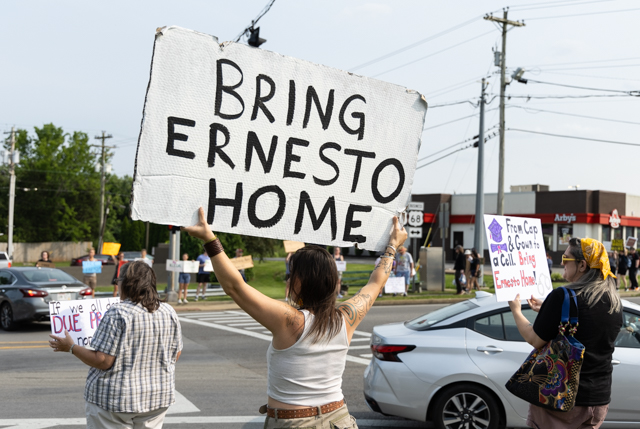Bridge bill a ramp to I-65 funds?
Published 12:00 am Thursday, June 25, 2009
Lawmakers headed home from Frankfort on Wednesday afternoon after approving a budget and an economic development incentives plan that includes the ability to establish tolling authorities for mega transportation projects.
The legislation allowing the tolling authority for Louisville bridges could mean good news for travelers on Interstate 65, according to Rep. Jody Richards, D-Bowling Green.
“I think that since we have passed this and the bridges won’t take money away from in-state projects that there will be enough money to finish I-65 in a reasonable amount of time,” Richards said.
Richards said having traveled to Frankfort via I-65 part of the way for years, he is well aware of the need to complete construction making it six lanes because of the high volume of traffic.
“Going to Frankfort, I can’t wait to get on the Bluegrass Parkway, and coming home I can’t wait to get to the three-lane section (of I-65),” he said. “You really have to stay on top of your game.”
The proposed bridges projects are estimated to cost $4 billion and without the ability to form a tolling authority, it would have meant that the state would have had to spend 48 percent of its road fund over the next 20 years on the bridges, Richards said.
Sen. David Givens, R-Greensburg, said the mega projects authority could have “evolving” impact over the years for other large projects.
Givens said Transportation Cabinet engineers are excited about this new tool to move the bridges projects forward as well as possibly benefiting other areas of the state.
Gov. Steve Beshear continued to express disappointment that the expanded gambling legislation failed but pleasure at the rest of the session.
“These are undeniable successes,” Beshear said in a statement. “We came here with big goals. We accomplished three of four of them in a span of a little more than a week. Few other states, if any, can lay claim to making such critical investments during the most difficult recession in our lifetimes. But the fact that we came together – working with the leadership in the House and Senate – demonstrates what we can do when we put aside partisanship and rivalry for progress and results.”
Rep. Jim DeCesare, R-Bowling Green, said the economic development-bridges bill had “several really good things in it” including one that should benefit the sale of new cars by taxing only the difference of the value between a trade-in vehicle and the new one being purchased; a $5,000 tax credit for new home purchases and a state income tax exemption for the military pay of active duty soldiers.
But those same measures trouble Beshear, who said they are worthy of support but will surely result in further budget cuts for most areas of government.
“Those decisions today will have profound consequences tomorrow,” he said. “And there should be no doubt of that among everyone involved in crafting this budget revision.”
Richards, who was not on the conference committee making the changes, agreed.
“I really think that the conference committee, when they were making the additions, should have paid for them,” Richards said. “The military tax exemption – everyone is for – but there was no provision to pay for it and that amounted to about $18 million. The governor will have to take that $18 million out of some other area.”
Restoring holidays for state employees will mean about $10 million has to also be cut elsewhere, he said.
Givens said he believes the car and home purchasing incentives will have little impact on the budget.
“I think the costs associated with those would all be minimal unless we have an economic turnaround, so I don’t see the state suffering unduly,” he said.
Both programs are capped at $25 million each.
“It would be a wonderful thing if we would have to deal with refunding each of them because it would mean things were turning around,” Givens said.
Since returning home Wednesday afternoon, Richards said he has received several calls from constituents.
“They were congratulatory phone calls in terms of what we were able to do for our community and several people who thought my votes were correct on the bills,” he said.
Givens said he was mostly satisfied with the session’s result.
“I was pleased we were able to deal with the primary purpose of the governor’s call, which was the budget,” he said. “And pleased with the tone and the attitude and majority of the matters that we worked with but saddened that we were not able to reach an accord on the much needed assistance for the thoroughbred industry.”
Givens said special sessions would be more fruitful and efficient if consensus could be reach on all matters before lawmakers were called into session.





